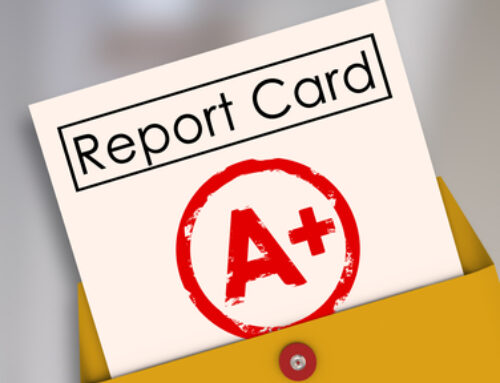 The school year is almost over, which means that high school seniors will soon be graduating. If you’re heading off to college in the fall, take advantage of the next few months to learn how to do some basic tasks that will help ease your transition to college life. Below is a list of life skills you should have before you start college:
The school year is almost over, which means that high school seniors will soon be graduating. If you’re heading off to college in the fall, take advantage of the next few months to learn how to do some basic tasks that will help ease your transition to college life. Below is a list of life skills you should have before you start college:
- Doing laundry. Before you wash anything, read the label. It will tell you if the item can be washed or if it needs to be dry cleaned, if it can go in the dryer, and what setting it should be washed and dried on. Be sure to separate white items from colored ones. Many colleges have an app that will text you when your laundry is ready, so you don’t even have to set a timer! It’s also good to learn how to iron clothes. Here, too, reading labels is key.
- Cooking. If you’ll be living in a residence hall, you’ll probably have a meal plan and won’t be doing much cooking. That being said, most dorms have a kitchen, and you may occasionally want to make a meal for yourself. Learn how to scramble eggs, boil pasta, bake chicken, etc. Follow directions on the package or in the recipe. As my mom says, “If you can read, you can cook.” This skill will be even more important if you’re living off-campus and don’t have a meal plan.
- Cleaning your living space. For perhaps the first time in your life, you will be sharing a very small space with another person. Even if you are the messiest person on the planet and you’ve been matched with a roommate who is equally messy, you need to contain your mess to your half of the room. While residence halls have cleaning crews, they are only responsible for common areas and won’t come into your room, so you should know how to tidy up, vacuum, and dust. If you are going to live in an apartment or suite-style dorm and will be responsible for cleaning your own bathroom, learn to do that, too (and yes, this includes cleaning the toilet).
- Managing your time. You’ll have considerably more free time in college than you did in high school. You’ll spend less time in class but will be expected to do more studying on your own. This can be one of the most difficult parts of transitioning to college, and to some extent, it may require trial and error. My best advice is to finish your reading/homework/studying before doing extracurricular or social activities. Learn how to break large assignments into small parts and plan out when you’ll work on each part. Finally, even if you don’t have to turn in any work during the semester and your grade is based solely on the final exam, don’t put off all the reading until finals. If you keep up with the assigned reading throughout the semester, not only will the class make a lot more sense, you’ll get more out of it.
- Keeping track of your schedule and making appointments. Again, your phone can come in handy here. I rely heavily on my phone’s calendar, not only to schedule meetings and appointments, but to remind me to pay bills and do items on my “to do” list. In the past, your parents may have taken care of scheduling doctor and other appointments for you, but this is something you’ll need to learn how to do on your own. Although many teens prefer to communicate via text, you may need to make a phone call to schedule some appointments.
- Making a budget. If your parents are going to pay for all your expenses and have given you free reign to spend as much as you want, you can ignore this one. But if that’s not the case, it’s important to talk with your parents about what they’re willing to pay for and what they expect you to cover. Learn how to use an ATM, write a check (for the rare occasions you’ll have to do that), and balance a checkbook. Make sure not to overdraw your account (withdraw more money than you have in the account), as you’ll be charged a fee. Understand how to pay bills, especially if you’re living off-campus and will have to pay for rent, utilities, etc. Pay your credit card bill on time and in full. It can be tempting to spend hundreds or thousands of dollars and only pay the minimum amount, but your credit score will be much higher if you don’t carry a balance, and this score will affect you for the rest of your life.
- Using public transportation, ride sharing services, etc. This will depend somewhat on where you’re going to college, but if you don’t have a car and want to do things off campus, you’ll need to have a way to get to them. Figure out where the nearest bus/lightrail/subway stop is and how to buy tickets. (Your college may provide you with a pass or there may be a student discount.) Save the number for a taxi company and/or download a ride-sharing app (Lyft or Uber) and learn how to use it.
- Advocating for yourself. In my observation, if there is one major life skill that high school students lack, it’s self-advocacy. This is something you’ll need to be able to do in college and for the rest of your life, whether dealing with a professor, a roommate, an employer, etc. In high school, you may have had your parents contact a teacher who you feel gave you an undeserved grade, but college professors aren’t going to talk to your parents. While it’s important to speak up for yourself when you feel your needs are not being met or you’re being treated unfairly, it’s also important to be respectful. You’ll have much greater success that way.
Although there undoubtedly are other tasks you’ll need to know how to do when you get to college, mastering those described above will be a good start!






[…] Summer is a great time to work on adulting, especially if you’ll be heading to college in the fall. For more on the life skills you should learn before college, see this blog post. […]
[…] allowing your son or daughter to take on more responsibility for everyday tasks (see my blog post, “Life Skills You Should Learn Before College”). One of the most important lessons you can teach your child is how to advocate for themselves. […]